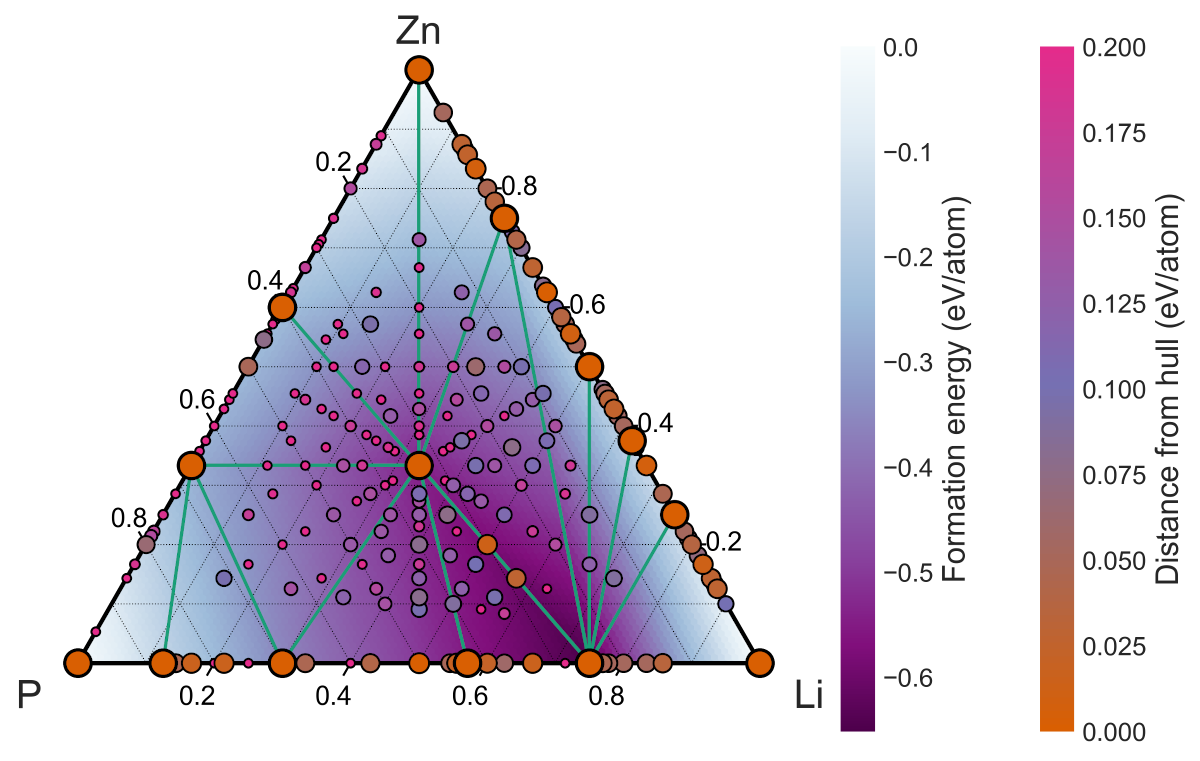matador is an aggregator, manipulator and runner of first-principles calculations, written with a bent towards battery electrode materials. The source can be found on GitHub and online documentation is hosted on ReadTheDocs.
Example Jupyter notebooks and tutorials can be found online or in the examples/ folder of the matador source code.
Written & maintained by Matthew Evans (2016-).
In the simplest case (e.g. you already have Python 3.6+ set up), pip install matador-db is sufficient to get up and running, preferably in a fresh virtual environment. More detailed instructions can be found in the Installation instructions.
Upgrading to the latest version should be as simple as pip install -U matador-db.
matador is primarily a Python library that can be used inside Python scripts/modules to create a custom workflow. There are, however, several command-line scripts bundled with matador itself. All of these scripts are listed under CLI Usage.
For basic command-line usage, please explore the help system for command. Common workflows can be found inside examples/ and in the online docs.
Please consult the full Python API documentation for programmatic usage.
The API has many features that can be explored in the examples and API documentation. As a summary, matador can be used for:
- Scraping of CASTEP (and Quantum Espresso) input/output files into flexible Python dictionaries/models.
- The creation and curation of MongoDB collections of geometry optimisation, calculations, with a powerful querying CLI/API.
- Customisable, publication-ready plots for all models, e.g. phase diagrams, PDF, PXRD, voltage profiles, electronic/vibrational bandstructures etc.
- Automated high-throughput geometry optimisations, electronic and vibrational properties using CASTEP (and Quantum Espresso) with
run3. Tested on several supercomputers. - Creation of phase diagrams and electrochemical voltage profiles from the results of DFT calculations.
This package is by no means unique in its functionality or goals. Below is a list of similar packages and an overview of where they overlap with matador:
- ASE: manipulation of structures, parsing and exporting files, running jobs and local databases with
ase-db. An interface is provided to ASE'sAtomsobject. - pymatgen: similar to ASE, with a focus on the VASP DFT code. An interface is provided to pymatgen's
Structureobject. Local databases can be constructed with the pymatgen-db add-on. - AiiDA: high-throughput job running, provenance tracking and database storage for many simulation codes.
- sumo publication quality plotting, primarily for VASP but also with support for other codes.
If you think this list is outdated, incorrect or simply incomplete, then please raise an issue!




